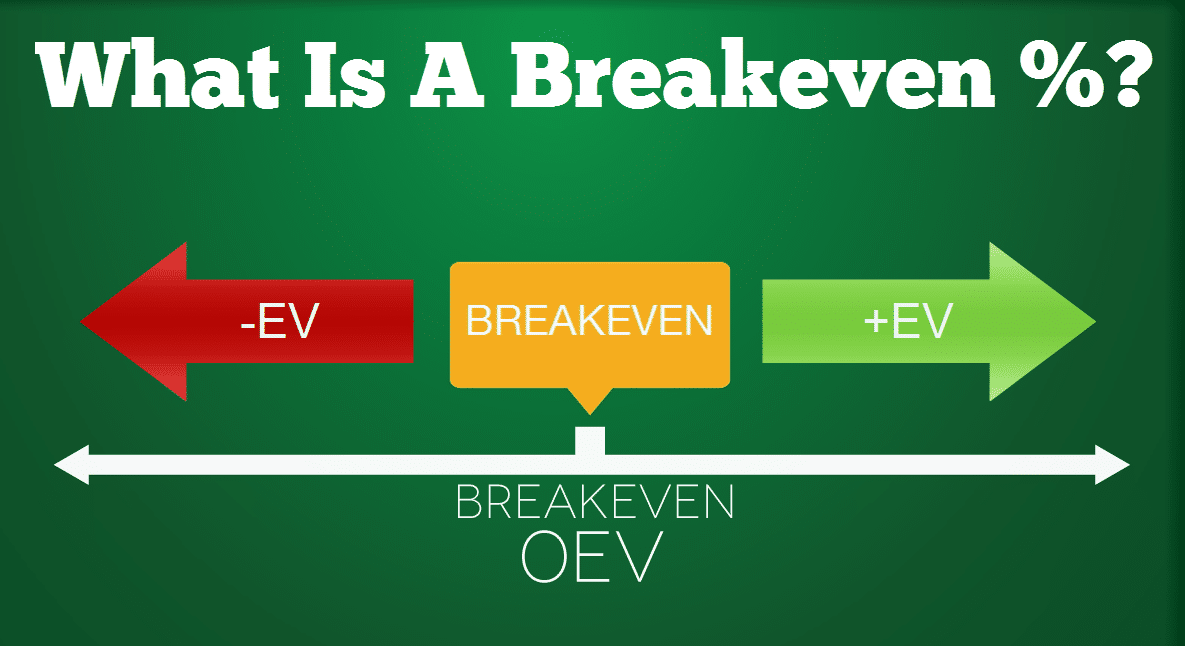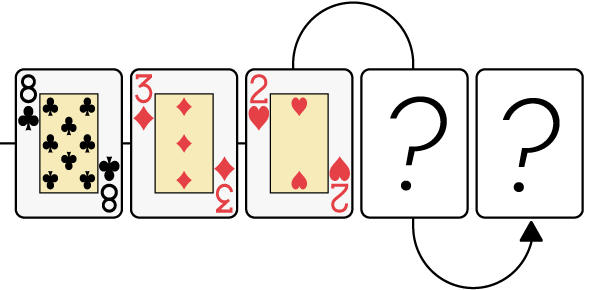In this hand Philipp has to decide what to do with Queen-high in a local poker tournament. Preflop, he makes an aggressive raise over a bunch of limpers and ends up going heads up to the flop. After facing a donk bet on 952, Philipp decides to start bluffing and needs a solid plan for progressing through the hand.
In this hand the blinds are $100, $200, and we have over 100 BB are effective. So I’m assuming this is pretty early in the tournament and there’s no payout discussion to have. So I’m just going to operate under that assumption because no other information was given to me about it.
There’s a limp. There’s another limp, another limp, and another limp, and Hero decides to attack. So obviously multiple limpers. Not too shocking in a live game. And this is a live MTT, so not too, too shocking to see all of this.
Now my main point preflop is going to be that obviously I love attacking, definitely. My issue here is with the size in a live game, especially you have to be very, very careful with your sizing. If you go too small, it is very easy to get a cascade of callers, and now you’re in a very bloated, multi-way pot with a hand that’s, nah, not so great.
This is one of those where I would ask myself could maybe $1900 generate folds from most everyone? Could $1200 do that? What’s that magic number that would generate a tremendous amount of preflop folds because that’s the button I want. I don’t want to risk going too small and getting everyone to call as well.
Which bet size would create a ton of preflop folds?
But moving onwards, we end up picking up just a single caller. Go heads-up to it, go here. Seat 7 decides to donk bet and Hero decides to raise. So in this situation, seat 7 is described as a tight player who likes to bet if she has anything from the board. Okay. Fair enough.
And then Philipp goes on to say, “She donk bet $1300, which really confused me because I never saw her donk betting. So I thought about her possible range and decided she might have a strong flush draw or pocket pair like 88’s or TT’s, and I don’t think she would bet a set here.” But then there’s no further discussion about it. It’s just, “I decided to raise at that point.”
I want to kind of pause here and fill in the gap and what the thought process really should be beyond that. I love the fact that we’re assigning a range of hands. I love the fact that you think flush draws are probably in there. I agree with that. 8’s and 10’s could be in there. Again, assuming you don’t think that seat 7 would just raise over the limpers themselves preflop and do, I think that one better said, “I am not 100% convinced about that.” I think you have to put at least some combos of sets in there.
Now, mind you, full combos, there are 9 combos of sets, 3 of each. So even if we only put half the combos in there, that’s 4½ combos extra in a range. I’m not sure if the donk range is necessarily that narrow. But it’s something that I would definitely at least put in there partially.
Now, the big reason why I say a lot of that stuff is what are they going to do when you raise, right? Are they just going to call with a lot of those hands? Are they going to fold a lot or any of those hands or are they just going to jam it in your face? Because the more they’re jamming, the less I like this kind of raise.
Not sure how to think about flop textures? Read this dynamic vs static flops article.
And the flush draw thing is really the most curious part of it for me. Because if you look at the ways that seat 7 could have a flush draw, it’s going to one of three different ways. One, there’s going to be a straight draw attached to it, maybe like a 67 of spades. Two, there could be a pair attached to it, like 98 of spades. Or, three, there could be an over card or over cards with spades, which are all extremely strong draws.
And it wouldn’t shock me to see someone like seat 7 or just someone in general ship it in after you decide to raise and just say, “Well, screw it. Let’s do it.” It wouldn’t shock me to see that, which means that if I think there’s a decent amount of flush draws in that range, I think those are going to pile it in and now I’m in a situation where I just have to raise fold my QT, which I get that you have to do that with some chunkier range, but I don’t think you have to do that in this spot.
So if you raise here and seat 7 decides to call, and it seems like Hero thinks that’s going to be the case, then seat 7 is probably only calling with maybe some draws and then things like maybe 9X or maybe like a sticky 5.
You have to have that plan in advance, but you really have to ask yourself is a large density of their donking range also going to donk-shove? Because if that’s the case, I really don’t love this range.
As played, seat 7 does to decide to call, and once they call, I think they’re going to be pretty pinned at, like, single pairs, maybe a couple of flush draws. But I think that’s probably a fair assessment at this point. Ace on the turn, check. Hero decides to check behind, and maybe Hero’s trying to wrap QQ’s, KK’s or just see a free river card. Totally possible I guess.
But my question would be if I thought that seat 7 was pinned at 9X or 5X, could I just bet here for something like 6.6 or even of 5.5 and get it away, right? Would they fold that hand? And that’s the major question I’m asking, right? Because the whole reason why you run this plan the flop is so that you can pin their range and you can make their life hell on future streets.
So are we going to make their life hell or are we going to say, “Oh, that’s a really good card. We’re going to check”? You really have to make that discernment. Like, what was the original plan of raising the donk bet? And that’s kind of why I had an issue with the write-up is it just seems like ‘I’m assigning a range, but I’m not really creating a good plan. I’m just doing things and just reacting.’

Learn how to bluff with super simple poker math
And that’s what I don’t want to see happen to any of you. If you’re going to play, definitely make sure that assigning a range, but then be proactive with your thought process. Don’t be reactive to everything else.
And then to wrap up this hand, we get a very interesting river card with the ace of spades and seat 7 decides to check. At this point, Hero says, “I decided to bet the river because I would lose at showdown 100% of the time,” and she also checked both aces.
And Hero also makes a really, really good, fair point. I’m so glad that they realized this. Is that because the ace of spades is on the river, it’s impossible for seat 7 to have had enough flush draw at any point in this hand.
So if seat 7 does somehow show up with a flush, it’s definitely not AX of it, which is good for us to know. Which probably pushes more combinations of things like raw 9X or raw 5X in that range, once seat 7 decides to take this line on this exact kind of run-out.
Whereas Hero can have flush draws. Hero can have things like value-betting KK’s or value-betting QQ’s or JJ’s or whatever it is. I think this is a situation where I’m okay with it. I think the bet size might be a little bit small. I think you should probably go just a pinch larger on a live environment to really ensure you get 9X or 5X to go away, especially on a single paired board.
But in that kind of situation, I’m glad that we’re looking for the bet. I’m glad that we’re looking to figure out how to dig ourselves out of this. And understand that you’ve got a pretty great run-out for this play. So, yes, it did work in this exact situation, but, again, I would really go back and kind of rethink the flop plan, really understanding if you raise, what’s my opponent going to do?
Are they going to 3bet draws in my face? Because, if so, probably not the best play to make.

